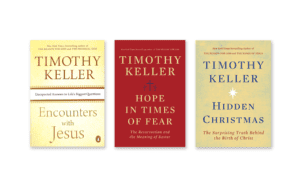When I was in college, I recognized a major difference between other religions and Christianity. Other religions had origin stories and accounts of their various heroes. But such stories were provided primarily as examples to emulate. The message was something like, “Live this way to find the path of wisdom and find unity with the infinite.”
The message of Christianity is different. It starts not with, “Here are things you must do,” but rather, “Here’s what God has done for you.” Christianity is about God, through the form of His Son, Jesus, arriving in our world in the form of a fragile human baby. It’s about God ministering to our needs. It’s about God dying for our sins, being buried in a tomb and being raised to life before eyewitnesses.
It’s true that Christianity profoundly changes how we live. But there is a prerequisite: This transformation can only occur if we first recognize the reality of God and His ministry to humanity.
We see a model of how to respond to God by taking a closer look at the first person to hear and consider the Christmas story: Mary, the mother of Jesus. Have you ever wondered why the Gospel of Luke tells us so much about Mary’s response to the Incarnation? I believe it is largely to show us what a responsive Christian faith looks like.
Mary reasons
When the angel appeared, Mary was “greatly troubled at his words, and wondered what kind of greeting this might be” (Luke 1:29, NIV). Here, the English word wondered is about rationally weighing and pondering. Mary was honestly trying to figure out how the angel’s appearance and his words could be true.
Today we see ourselves as a rational, scientific people. We ask hard questions, demand empirical evidence. Our culture has trained us to think that it’s practically impossible for modern people to believe in the appearance of an angel, though we understand that ancient people believed in supernatural events.
Frankly, that’s an arrogant view and a misreading of the text. Mary was struggling to understand what she was hearing. She was Jewish, and the news didn’t fit her worldview. Mary had different rational barriers to believe the prophetic message than a modern person, but it was just as hard for Mary to believe the Gospel as it is for us today.
There is no period in history where there are not enormous obstacles to believing the Creator of the universe came into a girl’s womb to be born as a human being. So the angel’s announcement takes on all cultural narratives and demands hard intellectual work; and Mary didn’t shirk it. She pondered the evidence and concluded its truth. And if she could do that, we, too, must be willing to use our reason to weigh the Christian message.
She questions
The Christian faith journey can look different for different people. Few become fully committed in a single
stroke. Mary’s faith happened in stages. Her first reaction to the angel’s announcement was measured incredulity: “How will this be, since I am a virgin?” (Luke 1:34). She was humble and honest about her uncertainties.
I often wonder about Mary’s expression of doubt. The angel answered her question with one of the greatest statements in the Bible: “Nothing will be impossible with God” (Luke 1:37). I’m so grateful for Mary’s doubt, because that statement has been comforting and guiding me for years.
Honest doubts lead you to ask questions. They make you somewhat vulnerable because they leave you open to the possibility of an answer that would cause you to shift your view. Honest doubts, then, are open to belief.
She accepts
The angel’s words resonated with Mary. So she said, “I am the servant of the Lord; let it be to me according to your word” (Luke 1:38).
Notice she didn’t say, “Yes, I get it!” nor, “I love this plan, and I’m totally in.” Rather, Mary responded with something like, “It doesn’t all make sense to me, but I believe it. I will follow.”
This can be a very important space to occupy, at least for a time. Some people will make no move toward Jesus unless it all comes together for them—rationally, emotionally and personally. But sometimes you can only do what Mary did—submit and trust despite your fears and reservations. That gives you a foothold for moving forward.
She seeks community
Mary did one last thing that can instruct us. She went to Elizabeth, who spoke to her in the power of the Holy Spirit. That certainly encouraged Mary—and it might have helped her understand her situation in a new way. After Elizabeth was done speaking, Mary broke into a song: “My soul magnifies the Lord, and my spirit rejoices in God my Savior” (Luke 1:46-47).
Mary’s worship referenced Psalms, Isaiah and the prophets, making remarkable connections that reveal the coming of the Messiah. And she recognized something new and very important: The angel’s announcement was not a contradiction of her biblical faith but was rather its fulfillment.
How interesting that the friendship and presence of another believing sister helped Mary recognize what was really going on. As believers, we need community.
Mary moves forward
God came to Mary and she responded in the humblest possible way. She reasoned, she doubted, she surrendered and she connected with others. We know that for every sacrifice Mary made for Jesus, Jesus made infinitely more for her. But we must recognize the example that Mary set for us: As she accepted her pregnancy, she accepted God’s will even at the risk of her life and the disdain of others. The resources we have in our faith journeys are greater than Mary’s. We can read the narratives, and we can see Jesus being the Great Servant, surrendering His will for us. So follow Mary’s example, and surrender to Him this Christmas. And don’t underestimate what He can do in and through you, if you put yourself in His hands.





















